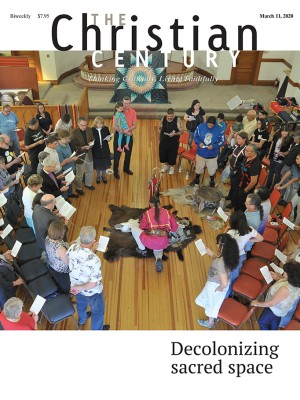What if Christianity never existed?
Walter Scheidel’s tour de force of world history is based almost entirely on counterfactuals.
What’s a historian to do when everything about a topic has already been written? Write about what didn’t happen!
That’s a rather cheeky way to introduce what is in fact a tour de force of world history. Walter Scheidel, who teaches classics at Stanford University, aims to answer the question of why Western civilization bounded past the rest of the world economically in the 18th century (a phenomenon that historians generally call the Great Divergence) by asking a different question: Could history have unfolded differently?
Scheidel begins by rejiggering the familiar terms. The Great Divergence becomes the Second Great Divergence, and he classifies what happened in Europe immediately after the Roman Empire as the First Great Divergence.
The book’s thesis is not novel to Scheidel, but he states it more clearly than others have: when Rome fell in the fifth century, it was not replaced by another hegemonic empire. Instead, a “durable polycentric state system” took its place. The competition for resources—both material and intellectual—between those emerging states led to advances that propelled Europe toward the Enlightenment and the Industrial Revolution. In contrast, in the Middle East, South Asia, and especially East Asia, fallen empires were replaced by new empires. And empires tend toward economic stasis.
Read our latest issue or browse back issues.
The link between a polycentric state system and economic growth can be seen in the story of Christopher Columbus. His first expedition was financed not by a nation-state but by Genoese merchants in Seville. When he shopped around his next idea, the Spanish crown, worried about Portuguese competition in Africa, gave him the money to sail west. Ultimately, the “discovery” of North America doubled the hectares available to Europe for everything from timber to sugar, greatly increasing wealth and driving urbanization (since Europeans didn’t have to farm so intensively with New World products in the marketplace).
In the face of actual history, Scheidel creatively invents alternate histories that he calls counterfactuals. What if, he conjectures, Afroeurasia were spun on an axis so that China was just a few hundred kilometers from North America and Europe faced the vast expanse of the Pacific Ocean? Would China have invaded North America and taken advantage of those vast resources? No, Scheidel posits, because during that same era China had no interest even in close lands like Japan, the Philippines, and Taiwan. In fact, imperial China made a point of discouraging exploration and discovery.
Over hundreds of pages, Scheidel imagines dozens of counterfactuals: What if the Roman Empire had never gotten off the ground? What if Alexander the Great had lived past 33? What if Charlemagne or Napoleon had succeeded in building a European empire? What if, instead of being divided by the Carpathian Mountains and the Alps, Europe’s geography consisted of vast steppes, like Asia? What if Islam had gained a foothold in Europe?
And what if Christianity had never existed? In Scheidel’s view, the Christian church functioned as a significant multinational force in post-Roman Europe, but “the case for attributing any critical importance to Christianity in accounting for the failure of empire-building in Latin Europe is . . . extremely weak.” In other words, Christianity did not bring down the empire, nor did it have excessive influence on the subsequent development of Western polities and economies.
Had Saul of Tarsus never popularized the message of Jesus, or had the Marcionites or Gnostics won the early theological debates, the West would have lost the Latin language as a unifying force. From this counterfactual, Scheidel concedes that without the church, Europe would likely have become even more fragmented even more quickly.
While Scheidel does not think that Christianity much influenced Europe, the polycentric system in Europe benefited the development and flourishing of the faith. He notes, for example, that Luther, Calvin, and Zwingli each found refuge in sympathetic environs, allowing their reforms to flourish. As we can see in modern states like China and North Korea, theological innovation doesn’t happen in autocracies.
In Scheidel’s final judgment, the Roman Empire is not the norm for Europe but an anomaly. In geography and culture, Europe does not lend itself to imperial rule, no matter what counterfactuals are conjured up. The best thing that the Romans ever did for us, it turns out, was exit the stage, leaving the various peoples of Europe to compete over the next millennium, paving the way for the greatest economic advancement the world has ever seen.
These days, we throw around terms like imperial and empire pretty freely, often in disparagement of present policies and economics. But in Scheidel’s scheme, the US in the 20th century is not an empire. Neither was the Holy Roman Empire in the Middle Ages, nor Great Britain in the 19th century, nor the Third Reich in the 20th—at least not in the way that Rome and China were in the past. Those were highly centralized and hegemonic governments that had no competitors on equal footing.
For those of us hoping for a peaceable kingdom, this presents us with a quandary. We don’t like the economic hegemony and oppression of an empire, but neither do we desire the competitive modernization of a fragmented continent in which state actors are regularly locked in conflict and even war. It might lead us to consider a ruler whose kingdom is not of this world.







